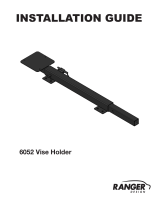
12
©2023 Lucid Hearing Holding Company, LLC. Lucid Hearing is a registered trademark of
Lucid Hearing Holding Company, LLC. All rights reserved.
LBL-1063 Rev 01
FREQUENTLY ASKED QUESTIONS (Continued)
Q: How do I know if an OTC hearing aid will work for me or if I should get a
prescription hearing aid instead?
A: This answer depends on your level of hearing loss. To get an accurate
understanding of your hearing loss, it’s best to see a professional and get a hearing
test done. Here’s a breakdown of the degrees of hearing loss as defined by the
American Speech-language Hearing Association to help you understand OTC versus
prescription hearing aid performance:
• Mild hearing loss: If one-on-one conversations are fine, but you’re having difficulty
understanding some words when there’s a lot of background noise, you may have
mild hearing loss. Technically speaking, it’s defined as having hearing loss between
26 – 40 decibels.
• Moderate hearing loss: At this level, you’re asking people to repeat themselves a lot
during conversations – in person and on the telephone. People with this degree of
hearing loss cannot hear sounds lower than 41 – 55 decibels.
Prescription hearing aids are your best solution if you have severe or profound
hearing loss:
• Severe hearing loss: If you can’t hear people speaking without the use of a hearing
aid or other amplification, or you tend to rely on social cues to understand the
conversation, you likely have severe hearing loss. People with this degree of hearing
loss cannot hear sounds lower than 71 – 90 decibels.
• Profound hearing loss: If you have profound hearing loss, you can only hear
extremely loud conversation or sounds – and even then, it’s difficult to understand
without a hearing aid or cochlear implant. People with this degree of hearing loss
cannot hear sounds lower than 91+ decibels.















